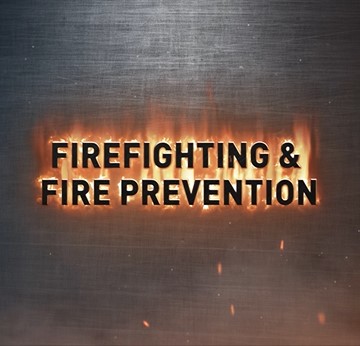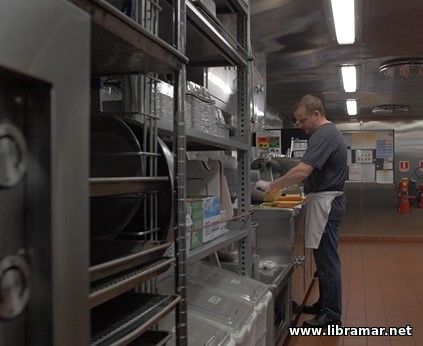Fire Fighting & Prevention

We all know that seafaring is as such a very dangerous enterprise, since there are so many threats that the seafarers of today have to face every single day. In addition to the storms and hurricanes, pirates, hijacking and other unpleasant events, one of the most terrific hazards is still the destructive force of shipboard fires.
Knowing that any mistake can cause catastrophic fire means that all of the crew members of your vessel shall be provided with proper training and follow proper policies and procedures as necessary and at all times. Good vessel construction, housekeeping and maintenance, following the established safety procedures, and keeping shipboard fixed and portable fire-fighting systems fully operational are all important for preventing fires. Your firefighting training can one day save the ship, cargo, and the lives of your fellow crew members and passengers.
Let us spend some time discussing the very essential fire prevention aspects, commonly used fire extinguishing agents and systems, as well as the personal protective equipment (PPE) that are required for all those involved in the firefighting activities, and, of course, fighting the fire itself. It goes without saying that the provisions of the Safety Management System Manual shall prevail at all times.
systems, as well as the personal protective equipment (PPE) that are required for all those involved in the firefighting activities, and, of course, fighting the fire itself. It goes without saying that the provisions of the Safety Management System Manual shall prevail at all times.
Maintaining a safe environment is considered absolutely crucial in fire prevention, and this means constant vigilance from all crew members, demonstrated at all times. They shall always ask themselves questions like - are there any potential hazards from the work that you are performing, such as sparks or ignition, are the proper procedures for welding, cutting or hot work followed, including issuance of the hot work permit, etc.
Have a close look around your work area – are there any combustible materials lying around, such as faulty electrical installations, poorly insulated exhausts, or fuel and oil leaks? These may see like small issues, but, if left untreated, they could lead to disaster. The practice shows that many fires can be avoided by timely checking the equipment for damaged wires, faulty electrical connections, and putting oily rags into a sealed container. Make sure that you never place combustible materials near a heat source, like exhaust pipes or heaters. The engine room is deservedly treated as a home for many hazards, such as ruptured lines and pipes, loose fittings, and oil leaking from equipment. Immediately repair any leaks.
Another area of the vessel where chance of the fire is high, is the galley. The galley can never be left unattended while cooking.  By maintaining a clean galley, grease accumulation will not be present to fuel the fire. Ensure the exhaust fans and ductwork are cleaned regularly as these are the major sources of galley fires.
By maintaining a clean galley, grease accumulation will not be present to fuel the fire. Ensure the exhaust fans and ductwork are cleaned regularly as these are the major sources of galley fires.
Here are few things to look for in the galley:
- Accumulation of grease and oil on cooking appliances
- Grease or soot in the fans and exhaust
- Rags and garbage are disposed of in the correct containers.
In the next article, we will have a look at the fire extinguishing agents available today to the seafarers onboard their vessels.
The "Read Later" function allows you to add material to this block with just one click. Just click on the icon and read the articles that interest you at any convenient time.


